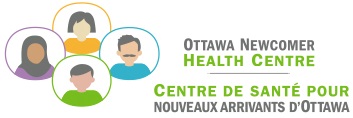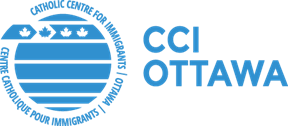A language barrier can be one of the biggest challenges that many newcomers face. Here we discuss 7 tips that can help you overcome it.
Canada is home to a large multi-cultural population. While English/French are the official languages of many provinces, there are around 200 different languages spoken in Canada. This is true, especially for highly multi-linguistic cities like Ottawa and Toronto.
Many newcomers in Canada face intense language barriers, especially in health care. Misinterpretation in health services can lead to serious consequences. Being unable to communicate or express yourself in a new space can also lead to feelings of anger, embarrassment, and isolation.
So what can you do to help yourself overcome those language barriers?

1. Take a professional language course.
You can join a language course or hire a tutor in Ottawa. Some organizations in Ottawa offer free language support to newcomers. The government also has some free-of-cost classes available for new immigrants that need language assistance. You can read more about them here.
2. Use the services of a professional interpreter.
A professional interpreter can help you avoid errors caused by misinterpretation. Medical interpreters can be especially helpful to prevent serious medical errors or misdiagnosis. Ottawa Language Access (OLA) provides culturally appropriate language interpretation services in healthcare settings. You can learn more about OLA out here.
3. Music and movies.
Listen to music and movies in the local language with subtitles and practice listening and speaking those sentences. This can help place words in conversations and gives you free practice!
4. Be patient with yourself.
Learning an entirely new language especially as a full-grown adult can take time. If you find yourself feeling defeated, remind yourself that you are trying something new and foreign. Every word you learn is a step closer to your goal.
5. Repetition. Repetition. Repetition.
Not all words or phrases will register after learning them only once. Keep repeating and practicing whatever you learn. When you speak with your family members or colleagues try to use the new language that you are learning. Watch this video on the importance of repetition while learning a new language.
6. Make use of all that technology out there.
You can use technology to assist you during your learning phase. Google Translate, iTranslate, Waygo, SayHi, etc. can all come in handy when you need assistance in understanding or explaining yourself.

7. Step outside your comfort zone.
This is an important step in overcoming any language barriers that you may face. You may want to always speak to your friends and family in your first language or stick to a group of people that speak the same language. Don’t make this mistake. Expand your friend and colleague circle to people who speak different languages. This will help you get more comfortable with not being the only one who isn’t fluent in the local language.
Keep practicing your new language. Don’t forget to be kind and patient with yourself. You got this!





